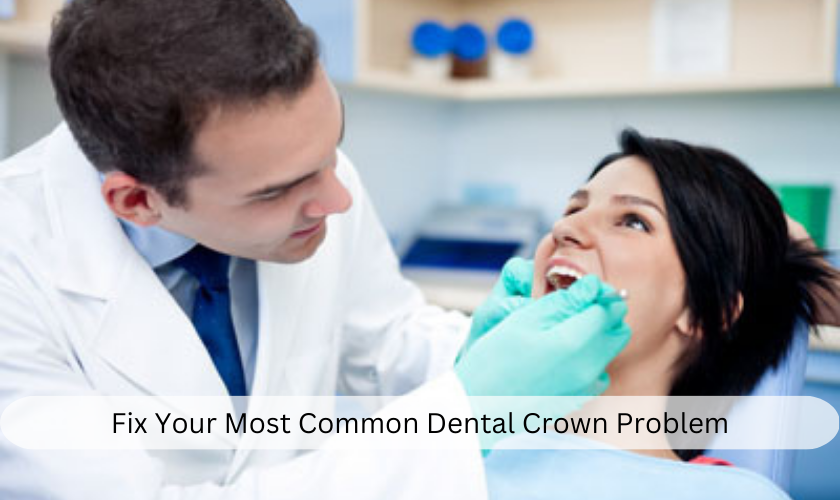
Are you dealing with a broken dental crown? A cracked or damaged crown can be a real pain, and not just literally! Fortunately, there are ways for you to fix your most common dental crown problems and get back to smiling confidently. In this blog, we’ll discuss the basics of dental crowns, how to tell if you need one and go over the most common dental crown problems — as well as provide tips for fixing them!
Dental crowns are a popular dental treatment used to restore damaged, decayed or weakened teeth. A dental crown is essentially a cap that covers the entire surface of a tooth, providing it with strength and protection. Dental crowns can also be used to improve the appearance of teeth, as dental crowns come in a variety of materials that are designed to look like natural teeth.
Whether you have an existing dental crown or need one, understanding the most common dental crown problems is important. Knowing what to look out for will help you stay on top of dental crown maintenance and save you from potential dental problems down the line.
The most common signs that you may need a dental crown are broken or cracked teeth, exposed dental root, discolored teeth, weakened fillings or decay, pain or sensitivity and dental trauma. If you experience any of these symptoms, it’s best to visit your dentist for an evaluation and determine whether or not a dental crown is the best option for restoring your smile.
The most common dental crown problems are:
This dental crown problem occurs when there is decay or bacteria that has built up underneath the dental crown due to poor dental hygiene practices or damage to the underlying tooth structure. As bacteria and plaque build up, it can lead to cavities and even dental abscesses. To prevent this dental crown problem, regular dental check-ups are essential.
This is usually caused by an ill-fitting dental crown or severe dental trauma such as biting down on hard objects or clenching and grinding your teeth. If the dental crown does not fit properly, it can come loose or even break off. To prevent this dental crown problem, it’s important to have a professional dental fitting for your dental crown that fits snugly on your tooth.
Ill-fitting dental crowns can lead to dental crown problems such as decay and bacteria buildup, gum irritation or infection, pain or sensitivity and even lost dental crowns. To ensure a proper fit for your dental crown, it’s important to visit your dentist for a professional dental fitting.
The good news is that most dental crown problems can be fixed! Here are some tips for fixing your dental crown problems:
Q1: How long does a dental crown last?
A1: On average, dental crowns last anywhere from five to fifteen years depending on the dental crown material and how well you take care of it.
Q2: What should I do if my dental crown comes loose?
A2: If your dental crown comes loose, it’s best to visit your dentist as soon as possible to have them examine it. They may be able to repair the dental crown or recommend getting a new one.
Q3: How can I prevent dental crown problems?
A3: The best way to prevent dental crown problems is to practice good oral hygiene by brushing twice a day, flossing daily and visiting your dentist for regular dental check-ups. This will help keep your dental crown in good condition and prevent dental crown problems.
Dental crowns are an effective way to restore damaged or decayed teeth. However, dental crown problems can occur if the dental crown does not fit properly or if there is decay or bacteria buildup underneath the dental crown. To prevent dental crown problems, it’s important to practice good oral hygiene and visit your dentist regularly for dental check-ups.